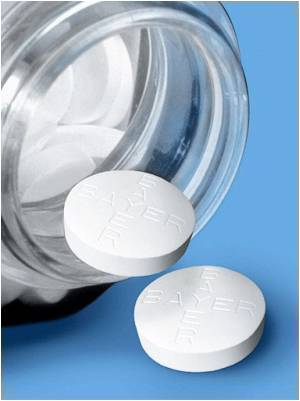- Long-term use of ibuprofen could have a negative impact on hormonal balance in men, particularly in athletes, finds a clinical trial
- Symptoms of low testosterone levels, decreased libido, infertility, mood disorders, and fatigue were reported in healthy young men taking Ibuprofen
Pills taken for the relief of pain and swelling on a long-term basis could create major effects on the pituitary-gonad axis by affecting the male reproductive system. The study was conducted in 31 healthy young men aged 18 to 35 years who took ibuprofen regularly. The results were compared with men who were given placebo tablets. The study on ibuprofen was also carried in testicular cells under a controlled laboratory environment.
Earlier studies have shown a reduction in testosterone levels in patients with arthritis. But this study on ibuprofen confirms that the reduction of hormone levels is because the painkiller medications were taken as a part of the treatment management in arthritis. Ibuprofen along with pain medications should be investigated further for their effect on male testicles.
Overuse of pain-relieving medications should be avoided to prevent the malfunction of the male reproductive system. It is highly recommended not to take non-steroidal anti-inflammatory drugs for more than 3 days and also seek a physician’s advice before taking the drugs.
About NSAIDs
Non-steroidal anti-inflammatory drugs are a group of drugs, which are used to treat pain and fever in small doses and swelling in large doses. These are mostly available as an OTC medicine and the commonly used are aspirin, ibuprofen, diclofenac, naproxen and mefenamic acid.
What are the Side Effects of NSAIDs?
The side effects that occur while taking nonsteroidal anti-inflammatory agents are as follows:
- Stomach bleeding
- Nausea and vomiting
- Heartburn and peptic ulcer
- Upset stomach
- Kidney and cardiovascular problems
- Swelling of the feet and ankles
- Rashes or related allergic reactions
NSAIDs should not be used in the following group of patients
- History of ulcer or stomach bleeding
- Disease of the kidneys
- Patients underwent gastric or coronary artery bypass surgery
- Severe hypertension
- Coronary artery disease
- Transient ischemic attack or stroke
- Pregnancy (particularly in the third trimester)
- Inflammatory bowel disease (Ulcerative colitis and Crohn’s disease)
- Aspirin or NSAID induced allergic reactions
- Bernard Jégoub et al., Ibuprofen alters human testicular physiology to produce a state of compensated hypogonadism. Proceedings of the National Academy of Sciences, DOI: 10.1073/pnas.1715035115
















